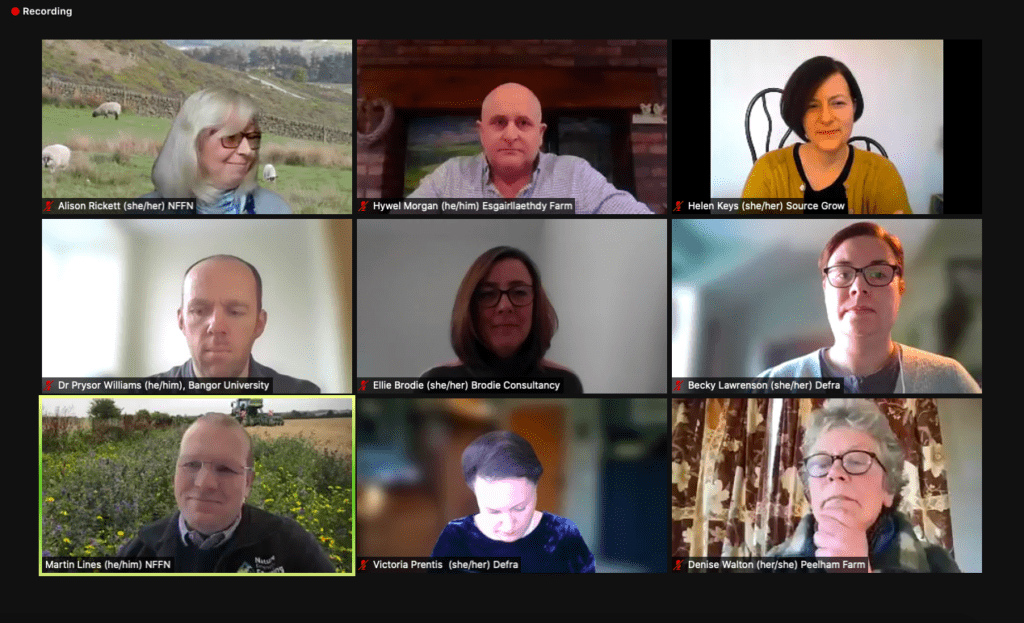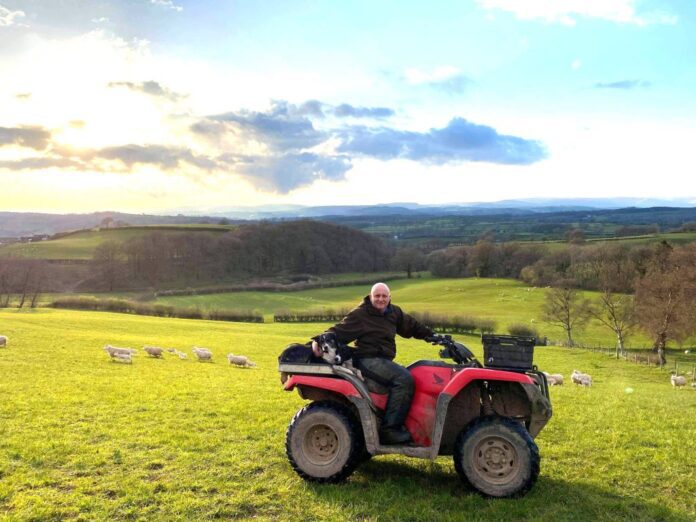A panel event, organised by the Nature Friendly Farming Network (NFFN), was held to discuss climate action in UK agriculture and what is needed to drive change.
Organised as part of the Oxford Real Farming Conference, the panel featured a range of speakers including Dr Prysor Williams of Bangor University and Myddfai farmer, Hywel Morgan from family farm, Esgairllaethdy, based on the western end of the Brecon Beacons.

Mr Morgan, who is a member of the NFFN’s Cymru farmer steering group, said it’s easier for farmers not to act on climate change if policy isn’t steering the way.
“The very big challenge with climate change is the pace of government policy. Change is coming and biodiversity is declining, which is an even bigger threat to farms. We need to start making changes today, not tomorrow,” said Mr Morgan.
“It’s good to see the Welsh Government’s plans for how the Sustainable Farming Scheme can help reduce reliance on farm inputs, like artificial fertiliser and imported feed. But launching in 2025 is a long wait when farmers need to plan their businesses in advance. We need more detail and to see a transitional scheme before then.”
He said farming policy should incentivise a whole farm approach, which brings the entire farm and all its resources into planning, so it benefits both the environment and better climate mitigation, with farmers being financially rewarded for doing so.
“I’d like for policies to help me do more than I already am for the environment. I’ve drastically cut down my use of fertilisers, sprays and chemicals to the advantage of a better business bottom line, but I want to do more. For many farmers, things like hedge planting and fencing are very expensive.”
He said there are things farmers can do now to reduce their climate impact, such as reducing external inputs, planting herbal leys, rotational grazing to benefit soil health and allowing grazing ground to rest and flower.
Prysor Williams, a farmer and senior lecturer in environmental management, said the government still needs to solve the issue of poor farmer returns with an overarching food policy, otherwise farmers are left at the mercy of subsidies and supermarkets.
He said: “Ultimately farmers respond to two major drivers, the market and policy. They govern why we have the farming systems that we do and they have done for the last 50 years. Addressing climate change is a combination of the government putting the right incentives in place, because there might be an upfront cost to the farmer, and a leap of faith by farmers to change their practices.”
“We live in a country where food is the third cheapest in the world and nobody wants to pay anymore for it. We know the power of the retailers and we’ve got to bear that in mind.”
Cambridgeshire farmer Martin Lines, who is chairman of the NFFN, said farms that start taking action now to address climate change will improve their resilience and make their business more profitable in the future.
He said: “As farmers, we have to ask ourselves whether or not our farm system could continue profitably without BPS. If not, it’s time to make changes, and more often than not, those are the same changes needed to make your business more climate- and nature-friendly.”
He said the NFFN is pushing governments across the UK to scale the value of farming’s contribution to climate mitigation by incentivising higher levels of on-farm delivery.
Mr Lines added: “As farming is one of sectors to be hit the hardest by climate change, we want policymakers to stand by their ambition. They need to mobilise farming into becoming an agent of positive change.”
A new report published by the NFFN advises farmers on how to start and continue the journey of farming for the climate with recommendations on incremental changes across the whole farm landscape, from creating habitats and implementing sustainable stocking rates to reducing tillage and protecting water courses.
Help keep news FREE for our readers
Supporting your local community newspaper/online news outlet is crucial now more than ever. If you believe in independent journalism, then consider making a valuable contribution by making a one-time or monthly donation. We operate in rural areas where providing unbiased news can be challenging. Read More About Supporting The West Wales Chronicle

























